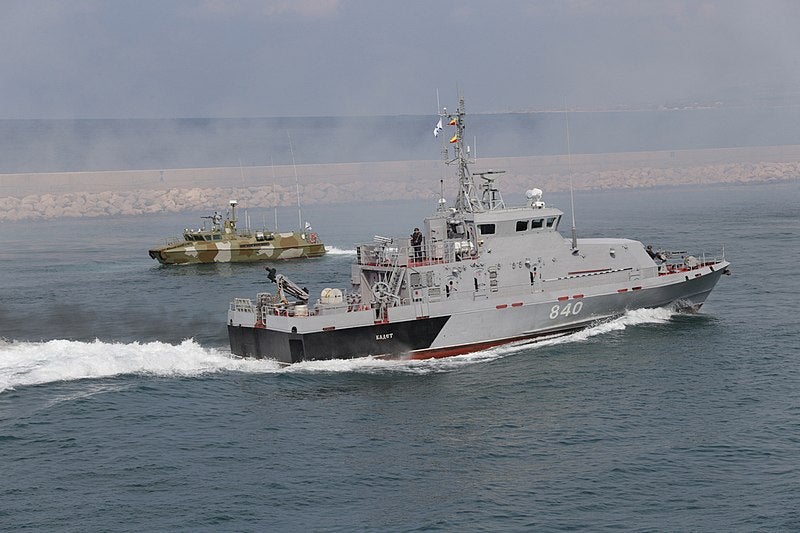Blocking The Bosphorus – Turkey Implements The Montreux Convention
With Russia’s invasion of Ukraine, a flurry of condemnation and sanctions from the EU, NATO and many countries began. In the midst of this activity Turkey’s handling of the situation became a matter of interest. How would Turkey, which has close relations with both countries, implement the 1936 Montreux Convention, which regulates the transit regime and security of the Turkish straits (Çanakkale and Istanbul).
On the day of Russia’s invasion of Ukraine, the Ukrainian Ambassador to Ankara, Vasyl Bodnar, gave the first official remark on the subject of the Straits at a press conference. “The Turkish side is assessing our response, the evaluation process takes time, of course, we wish to receive a positive response,” Bodnar said, adding that they urged Turkey close the straits.
“Our experts are analyzing if there is a state of war,” Turkish Foreign Minister Mevlüt Çavuşoğlu stated one day after the ambassador’s statement. “This procedure will begin if we accept it legally, and we will be able to limit the passage of warships based on developments,” he said.
On February 26, Ukrainian President Volodymyr Zelenskyy tweeted, “I thank my friend Mr. President of Turkey Erdoğan and the people of Turkey for their strong support. The ban on the passage of Russian warships to the Black Sea and significant military and humanitarian support for Ukraine are extremely important today. The people of Ukraine will never forget that!” Following this statement, many news outlets around the world reported that Turkey had closed the Straits to Russian warships.
In response to these press reports, Foreign Minister Mevlüt Çavuşoğlu stated on February 27 during a live broadcast of CNN Türk that the ongoing crisis between Russia and Ukraine had been defined as “war,” and that the powers granted to Turkey by the Montreux Convention would be used in this context. In his speech, Çavuşoğlu stated that the 19th article, in particular, would be applied, and that the Montreux Convention would be implemented for all parties.
President Recep Tayyip Erdoğan made a statement on the subject on 28 February, one day after Çavuşoğlu’s statement, after appearing before the cameras following the Presidential Cabinet Meeting. Erdoğan noted in his statement, “We issued an invitation to Ukraine and Russia to engage in dialogue. Turkey desires regional peace.” Erdoğan went on to say, “We are determined to use the authority granted to our country by the Montreux Convention in a way that prevents the crisis from escalating.” Responding to journalists’ questions about the agenda following the cabinet meeting, Minister of National Defense Hulusi Akar stated, “We are making an effort to prevent the Black Sea from becoming a conflict area.” Akar stated that the erosion of the Montreux Convention would benefit no one, and that “we will continue to implement the 19th, 20th, and 21st articles of the Montreux Convention, as we have done so far.”
In summary, Article 19, as frequently emphasized by Foreign Minister Çavuşoğlu and Minister of National Defense Hulusi Akar, prohibits the passage of warships of warring parties through the straits. This clause has only three exceptions. First and foremost, warships may pass if an operation is to be carried out under the auspices of a United Nations joint decision. Second, ships from Black Sea states that have been separated from their mooring ports can use the straits to return. Third, they can pass under the terms of an aid agreement to which Turkey is a party. Warships from warring states are not permitted to pass with these three exceptions.
Çavuşoğlu told Turkish media outlet Haber Türk on March 1 that three Russian ships were denied passage through the straits in accordance with Article 19 of the Montreux Convention. In his statement, Minister Mevlüt Çavuşoğlu said, “Recently, we were told that four Russian ships would arrive on the 27th and 28th of February. Three of them were not registered to Black Sea bases. ‘Don’t send these ships,’ we said. We informed the countries that are party to Montreux.” If the Russian ships came to the straits despite their notice, “one of the ships could pass, three of them could not,” Çavuşoğlu said.
Turkey continues to apply the 20th and 21st articles in addition to the 19th article, according to the 20th article of the Convention, if Turkey is a party to the war, the Turkish government will be able to act entirely as it wishes regarding the passage of warships. Article 21 of the convention, on the other hand, states that the Turkish government may act as it sees fit regarding the passage of warships through the straits if Turkey considers itself to be “under the threat of imminent war.”

Within the scope of the Montreux Convention, the restrictions imposed by Turkey, which did not impose direct sanctions on Russia like other western and NATO countries, will impede the movement of Russian warships, who also have a fleet in the Mediterranean. If the war continues, it appears that it will be a negative development for Russia, as ships from Syria, where they have the largest bases outside of their own territory, will be unable to access the Black Sea during the conflict, and the flexibility required for logistical supply will be unavailable.

